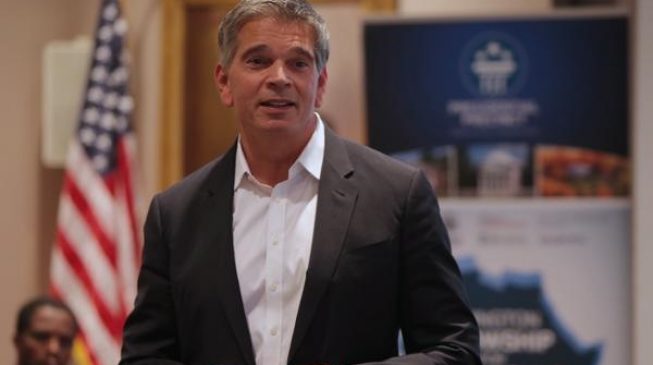
Representatives of the US government say plans are underway to establish the West African Trade Hub (WATH) in Lagos and Abuja, Nigeria.
This is in a bid to support the bilateral trade between Nigeria and the United States.
Grace Adeyemo, director of the Nigeria-American Chamber of Commerce (NACC), said this at a conference for Prosper Africa, an initiative of the US government targeted at “creating an enabling environment for foreign and direct investment” in African countries.
Adeyemo expressed optimism about the economic prospects of the President Donald Trump-backed trade initiative, which, according to her, prompted the decision to move the trade hub into Nigeria.
She, however, noted that Nigerian entrepreneurs who seek access to opportunities that would accrue from the initiative through the hub would need to meet the regulatory standards required to break into the US/global market.
According to her, the NACC would also offer advice to prospective exporters who would like to take advantage of the tariff-free market on the US-Nigeria bilateral trade agreement.
“US representatives have told us that the West African Trade hub would now move into Nigeria to be situated in Abuja and Lagos. This is so that we can address our challenges and have the hub serve as an overseer reciprocatory for all we’re going to be doing in the US,” she said.
“It will be launched anytime soon. It has always been in Ghana. US government is willing to support a partnership between US investors and Africa. Nigeria can latch onto that but we need to get it right first. We need to try to grow our businesses and add value to them.”
WHAT IS THE WEST AFRICA TRADE AND INVESTMENT HUB?
WATH is a one-stop shop organization backed and funded by the United States Agency for International Development (USAID) to increase the value and volume of West Africa’s exports by addressing challenges in intra-regional and export-oriented products.
Apart from synergizing with local regulatory agencies and policymakers to influence the business environment and attract investors, it is also targeted at promoting the two-way trade between Africa and the US under the African Growth and Opportunity Act (AGOA).
AGOA is a US policy that accords duty-free treatments to virtually all products that are exported to the US by beneficiary sub-Sahara African countries. Acclaimed as the cornerstone of US trade policy with Africa, it is aimed at facilitating the export of over 6,000 goods with no tariff.
WHAT IS THE PROSPER AFRICA INITIATIVE?
Prosper Africa, a trade initiative launched by the Trump’s administration, is one aimed at synchronizing the efforts of the US government agencies to facilitate more deals between the US and African businesses and address trade/investment barriers.
Earl Gast, executive vice president of programs at Creative Associates International, said the end-result of the initiative would create more jobs for Nigerians. He said it would significantly grow the economies of both countries and improve the export capacity of Nigerian businesses.
“With Africa’s prosperity should come the US’ prosperity. We’re looking at how we can marry up the private sectors of both countries and, in the context of Nigeria, partner with the US capital; knowhow; and exports,” he said.
“Economies would grow, jobs would be created through private sector development. Nigeria would export into the region, through AGOA strategy, and to the US. We’re also looking at US exports that might help grow companies in Nigeria so that they can take advantage of the US market.”
On her part, Florie Liser, CEO of the Corporate Council on Africa (CCA), said the initiative would support US firms that intend on investing in Africa and develop the value of Nigerian products to enable the private sector benefit substantially from the value chain.
“Now Prosper Africa is focused on incentivizing and facilitating US investments into Africa in key sectors, whatever they may be. Agro-business is one of them. But there are others: health, ICT, infrastructure and places where the US government can bring value in terms of products and services,” she said.
“The reason that Africa accounts for only 3 percent of world trade today, notwithstanding that they have so many resources they sell the world, is because they are always on the lowest end of every value chain. You ship raw products while somebody else processes it into something that has more value.
“As long as that stays that way, Africa wouldn’t be able to benefit much from global trade. Why shouldn’t Africa ship its value-added products instead of raw products? The focus of the initiative is going to be on the investment into productive capacity that adds value.”
©Cable